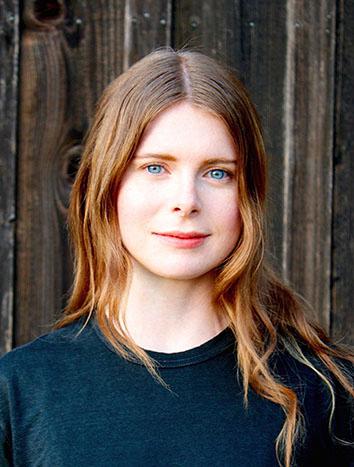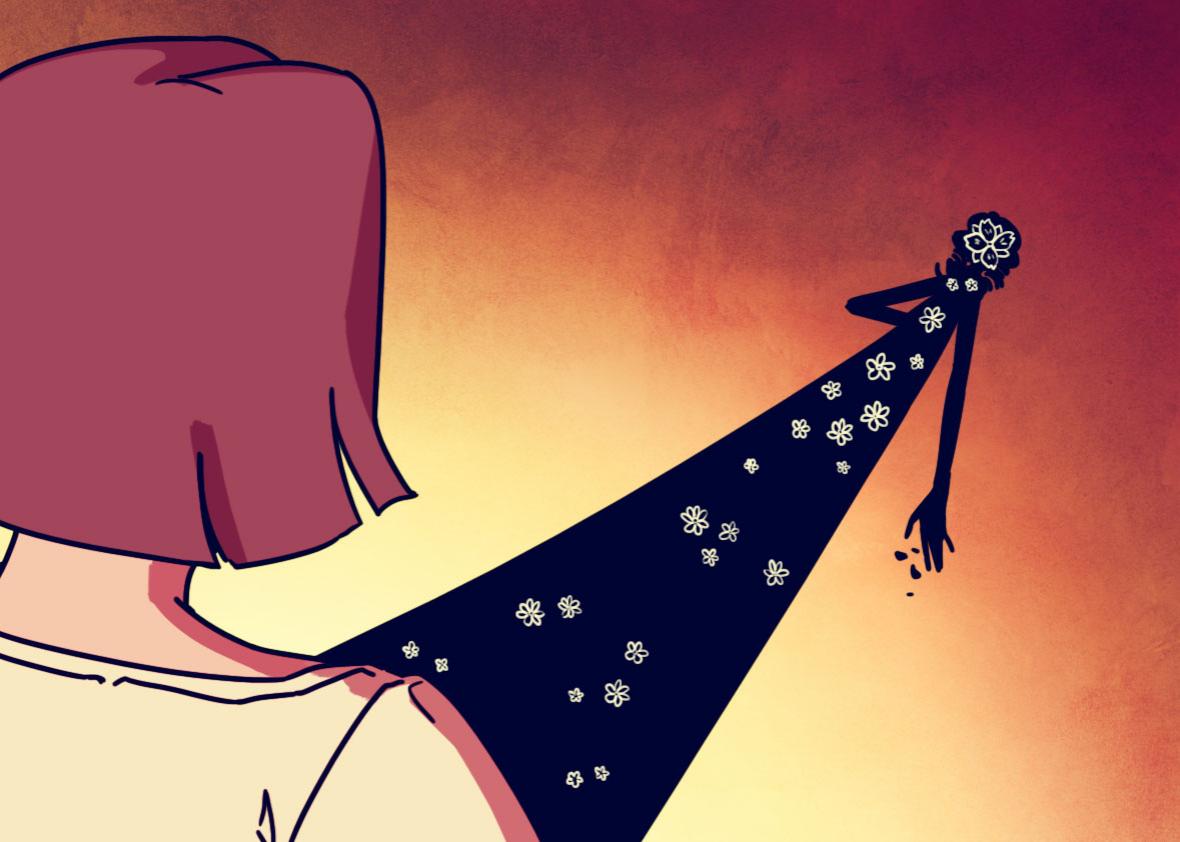In the late 1960s and early 1970s, the forces that shaped the Manson Family seemed at once unfathomable and obvious. The grotesque and random killings were terrifying enough, but those freaky girls—both the three on trial for murder and the zonked-out bevy of singing hippie chicks who knelt on the sidewalk outside the courthouse, first with Xs carved between their eyes, then with shaved heads—made it so much worse. No one knew why they did what they did, but everyone understood they embodied the darkest undercurrents of the counterculture. They were evidence of just how bad kids could get once they rejected mainstream middle-class goals and values.
Manson treated the girls who clustered at his feet as, above all, commodities, using them to lure, bribe, and reward men who had something valuable to offer him: skills, property, money, show-business connections, muscle. He was essentially a pimp, a role that required him to be exquisitely attuned to women’s psychology and, at the same time, to treat them like cattle. In her first novel, The Girls, Emma Cline describes her lightly fictionalized version of Manson, Russell, as “an expert in female sadness”; his “bread and butter,” Cline writes, the “thin, harried girls with partial college degrees and neglectful parents, girls with hellish bosses and dreams of nose jobs.” Her narrator, Evie Boyd, was once just such a girl.
The Girls alternates between Evie’s experiences in the “endless, formless summer” of 1969 and her life four decades later, crashing at an old friend’s vacant beach house somewhere between Los Angeles and Humboldt County. The friend’s teenage son and his girlfriend turn up unexpectedly for a couple of nights and express the usual morbid interest at meeting someone connected to a notorious crime, even if that connection is tangential. As a girl, Evie never actually lived at Russell’s decrepit ranch in the hills outside the dairy town of Petaluma, and she didn’t participate in the slaughter at a famous musician’s house in Marin. Her name doesn’t appear on the Wikipedia page or in any of the lurid books about the murders. But the adult Evie has never shaken the memory of the ranch, and Cline gradually makes clear that’s not because it was so very different from the average run of American life, but because it was, underneath it all, so similar.
Cline’s fictionalization of the Manson Family strips out the jittery, apocalyptic mania of the original. One way of looking at the Family sees it as a metastasis of L.A.’s already-toxic cult of celebrity in the late 1960s; by transplanting the setting to a sleepier, more reclusive Northern California and eliminating Manson’s obsession with triggering a race war, Cline makes the cult seem less the product of a particular cultural moment and more like something eternal that lurks at the edges of every suburban town. What draws Evie to the ranch isn’t Russell’s personal magnetism: To her, he’s always a bit remote and intimidating. Instead, her neediness latches onto Suzanne, the alpha girl in Russell’s stable, whom Evie first sees walking with two friends through the town park seeming “to glide above all that was happening around them, tragic and separate. Like royalty in exile.”
Evie lives with her recently divorced mother, who binges on New Age self-help and stocks the refrigerator with miso and rice—her father has run off with his much-younger secretary. Her mother is so preoccupied with salving the wound of that desertion that she barely notices as Evie’s wardrobe becomes seedier, or bothers to check her daughter’s stories of spending most summer days and nights with her best friend, from whom Evie is in fact estranged. “I was so attuned to attention,” Evie recalls. “I dressed to provoke love, tugging my neckline lower, settling a wistful stare on my face whenever I went out in public that implied many deep and promising thoughts, should anyone happen to glance over.” But no one ever does, not even her own parents. Until Suzanne comes along.
The Girls works a well-tapped vein in literary fiction: the queasy exploration of how young women with crippled egos can become accessories to their own degradation. Joyce Carol Oates and Mary Gaitskill are masters of this theme. Cline’s contribution is a heady evocation of the boredom and isolation of adolescence in pre-internet suburbia, in houses deserted by their restless, doubt-stricken adult proprietors where “the air was candied with silence.” The novel is heavy with figurative language; Cline has a telling fondness for the word “humid.” Not all of this comes off effectively (Evie’s mom makes Chinese ribs that “had a glandular sheen, like a lacquer”), but most of it does (Evie, dazzled by her father’s girlfriend, thinks she has a life “like a TV show about summer.”)

Megan Cline
And in this case, the languorous effects of the prose match its subject: that state of feeling as if you’re stuck in life’s antechamber, scrutinizing the static world around you for clues on how to get out, hoping to be rescued by someone more real than yourself, someone who deems you worthy. Recurring, oblique references to Sleeping Beauty pepper the novel, but Evie fears that no one, let alone a prince, will ever kiss her out of the spell: “There were only so many girls, I understood, that could be marked for love.”
Self-possessed Suzanne, Evie believes, is one of them. Suzanne is also the only person who genuinely attends to her. During Evie’s semi-feral sojourns to the ranch, the other girls provide her with an animal companionship, the sort that puppies get from napping in a pile, but it is Suzanne she loves. Even when Russell brings her into his trailer for sex and his usual line of patter (“I’m like you,” he tells her, “I was so smart when I was young, so smart that of course they told me I was dumb”), his charm glances off her. She views the incident as an initiation rite that grants her access to Suzanne’s inner circle.
But does Suzanne really care for Evie or is she just using the girl the way Russell uses her? That’s the novel’s central enigma, the question adult Evie ponders as she observes the young couple at the beach house. (Cline, 27, writes with impressive verisimilitude from the weary perspective of a woman twice her age.) Nothing much has changed. The boy treats the girl as cavalierly, with as much barely veiled contempt, as Russell treated his girls—and as so many ordinary men would treat Evie as she grew up and made her way through a relatively normal life. She tries to intervene but is reminded once more of how hard it is to wake up a girl who thinks she’s lucky just to be hanging around with some asshole. All that varies is how far the asshole is willing to go. The irony of The Girls is that Russell’s ranch is neither the utopian alternative to the “straight” world nor its demonic antagonist. The two social orders resemble each other far more than either would ever willingly admit.
—
The Girls by Emma Cline. Random House.
See all the pieces in the Slate Book Review.
